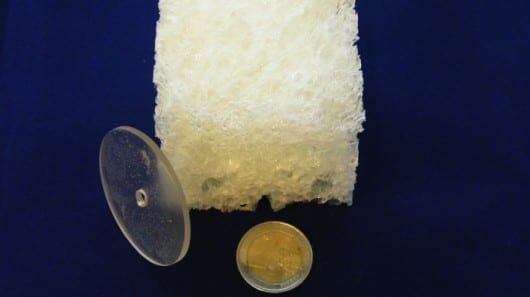Scientists from the University of Amsterdam (UvA) have developed a process for making fully biodegradable, non-toxic and non-hazardous thermoset resins from readily available, low-cost plant materials.
It’s hoped that this new range of plastics could be used for panels such as MDF in the construction industry and replace polyurethane and polystyrene packaging … all without increasing cost or production times.
Most of the plastic products used in domestic products and the construction industry are thermosetting plastics; polymer materials that irreversibly cure.
They are made of three-dimensional networks of cross-linked polymers. Bakelite resin, produced from the reaction of phenol with formaldehyde, is one example, and the material is still used to bind wood fibers in pressed wood such as medium density fiberboard (MDF) and formica. Synthetic resins are also widely used in the construction industry for example in Medium Density Overlay (MDO), a combination of concrete and plywood, used in concrete molds.
Modern synthetic resins have a lot of negatives: they are made from diminishing fossil sources, are not biodegradable and can only be burned under strict conditions because they release toxic substances.









